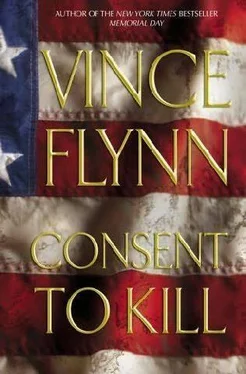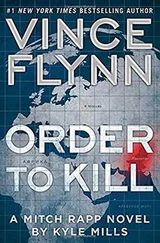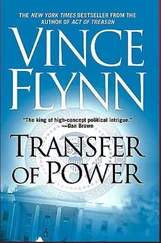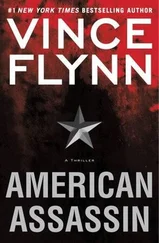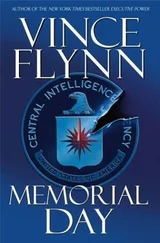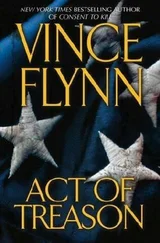It was obvious Ross did not like Kennedy's tone. He sat up straight and asked, "Who were the two men you sent to Rapp's house last night?"
"I'm not sure I know what you're talking about."
"I spoke with the Anne Arundel sheriff this morning and he told me that two men showed up last night and said that you sent them out there to poke around." Ross folded his arms across his chest. "Apparently they caused quite a stink."
"Really?"
"Yes. Who were they?"
"Professional assassins."
Ross's face flushed with anger. "I don't think this is the time for humor."
"No humor." Kennedy shook her head. "They were a couple of black-bag guys who specialize in killing people and making it look like an accident."
Ross's nostrils were flared in anger. "What were their names?"
Kennedy shook her head. "I can't tell you."
"Why not?"
"You don't have the security clearance."
"I'm your boss," he said in a voice on the verge of outright rage.
"That does not mean you have clearance," Kennedy insisted. The mood in the room got very tense. "Mark, I'm surprised that you seem more concerned about who they were than what they had to say."
"Who they were is a genuine concern," stated Attorney General Stokes. "If this was in fact a crime, my people will have to build a case, and it will not look good in court to have a couple of professional assassins poking around a fresh crime scene tampering with evidence."
"And, Irene," said Ross, "this so-called evidence they found is incredibly thin. A few trampled blades of grass and a tire track." Ross shook his head and frowned. "Balance that against the fire chief's report that it was an accident, and this thing will never get off the ground."
"So what would you propose we do? Ignore the warning we received from the Jordanians last week that a bounty had been placed on Rapp's head? Ignore the findings of two highly trained, and highly decorated, Special Forces veterans who know more about this kind of thing than all of us combined?"
"We're not saying that at all," answered Ross.
"Then why are you so hell bent on trying to write this thing off as an accident?"
The room got very quiet. The three cabinet members looked to the president as if this was the moment where he should step in, but the president wasn't biting. The vice president for his part stayed quiet.
Secretary of State Berg cleared her throat and said, "Irene, there's a right way to handle this and a wrong way."
Isn't there always, Kennedy thought to herself.
"The right way is to let the FBI handle the investigation."
"And the wrong way?"
"The wrong way," interjected the attorney general, "is to have CIA black-ops people poking around a potential crime scene."
Kennedy noted that Stokes had used the word potential and momentarily thought of explaining to the nation's top lawyer that if it weren't for Coleman and Wicker none of this evidence would have been discovered, but she knew it would be a waste of breath. Their minds were already made up. They were afraid of a vengeful Mitch Rapp, or more to the point, they were afraid of what he would do in the name of the U.S. government. The embarrassment he could bring to them and their organizations was immense.
"I can assure you," Attorney General Stokes continued, "if a crime was committed, we will make sure the perpetrators are brought to justice. It might take some time, but we will do it. In the meantime you need to explain to Rapp that he is in no way involved in this investigation, and if he decides to get involved, he's going to find himself in some serious legal trouble."
If the situation wasn't so serious, Kennedy would have found the attorney general's warning laughable. She turned to the president to see if he was actually buying into this nonsense. She found him looking at his watch and trying to avoid eye contact. She remembered Haik's warning, and turned back to the attorney general. "I'm sure Mitch will be sufficiently intimidated by your threat of legal trouble. Maybe you'd like to deliver the message yourself."
Stokes did not like the comment and turned to Berg and Ross for support. The director of National Intelligence spoke first. "The last thing we need is an employee of the Central Intelligence Agency acting as a judge, jury, and executioner."
"I would actually say the last thing we need is someone getting away with trying to assassinate an employee of the CIA."
"If someone tried to kill Rapp, we'll find them, and they'll be punished."
Kennedy nodded in a way that said she wasn't buying any of it, and then asked, "How do you plan to stop Mitch from pursuing this on his own?"
"As his boss I expect you to control him," Ross said flatly.
"And if he quits?"
Ross turned to Secretary of State Berg. She hesitated briefly and then said, "We've revoked Mr. Rapp's passport. He's forbidden to leave the country."
Now this truly was funny. The trivial precaution caused Kennedy to laugh out loud. Three stone-faced cabinet members stared back at her. "And you think that's going to stop him?" asked Kennedy. "Mitch Rapp…a man we trained as a deep cover operative? A man who speaks five languages, has I don't even know how many aliases, and has at one time or another crept in and out of virtually every country in Europe and the Middle East? You think revoking his passport is going to stop him?"
They ignored the question and Stokes said, "For his own good we're placing him under protective custody."
Kennedy shook her head and replied in a sarcastic tone, "That's kind of you to offer, but we'll pass."
"Irene, it's for the good of the country," said Ross.
"That's debatable, but in the meantime, he's safe and in no need of further protection."
"Irene," said Stokes, "if I need to, I'll get a court order."
"On what grounds, Marty?" Kennedy's temper flared for the first time. "You think you're the only person in this town who has a judge in his back pocket?" She let him think about the implied threat for a second and then added, "Trust me…you'll lose on this one, and it won't be pretty."
Ross held his hand up, signaling for them both to stop. "Let's all take a deep breath and calm down. I'm sure the CIA is more than capable of keeping an eye on Mitch until he's recovered. In the meantime, Irene, we're going to have to grant access to the FBI so they can interview him."
Kennedy hesitated and then said, "Have Special Agent McMahon call me, and I'll set it up."
"I would also like to talk to him," said Ross.
"I doubt he's up for visitors at the moment, but…"
"When he's ready," the president said, directing his comment at Ross and not Kennedy.
There was a brief pause and the president's national security advisor took the opportunity to end the meeting. He stood and said, "The president is on a tight schedule this morning, so if you'll excuse us." Haik pointed at Ross and asked, "Do you have fifteen minutes?"
"Of course."
Haik pulled the director of National Intelligence aside and began speaking in hushed tones. The president was gone before anyone noticed, ducking out through the door that led to his personal secretary's office. Kennedy took one last look at Secretary Berg, Attorney General Stokes, and Vice President Baxter and then left the room in disgust.
THE WHITE HOUSE
Kennedy went straight for the situation room. In her twenty plus years at the CIA she had never sat through a bigger cover-your-ass meeting. It was not her boss or the attorney general or the secretary of state who she was upset with, though. She had expected them to protect their fiefdoms, just not so soon. Her ire was directed at the president. She'd never seen him so ineffectual before and especially on an issue where she thought he would be every bit as upset as she was. None of it made sense.
Читать дальше
